How does this apply to fiction?
I anticipate this would be the very next question many of my readers would ask. This is all well and good for blogs, articles, and other non-fiction writing, but what about when telling a story? Could the same be said for writing a book?
In a way, yes, but we need to clarify what we mean by “substance” and “style.”
“Style means the right word. The rest matters little.”
—Jules Renard
To boil it down to the most basic parts, I think it’s safe (for the sake of argument) to say that the “story” of your book is the substance, and the “voice” of your book is the “style.”
The story would include things like world, characters, plot, events, arcs, and more.
The voice includes things like pacing, exposition, word choice, and all the things we can’t quantify, yet define the style of a writer’s art.
“Create a world in front of your readers where they can taste, smell, touch, hear, see, and move. Or else they are likely going to move on to another book.”
―
I could (but I won’t) list books that have the most cliché stories, boring characters, and predictable character arcs, yet they were told in such an artful and clever way that it ended up being successful, or an enjoyable read.
Likewise, I have read other books with fantastically original ideas, lush worlds I could lose myself in, and marvelously complex characters, but they were told in a boring, inauthentic, or lazy way that I lost interest despite my best efforts. Many a storyteller, like comedians, has shot themselves in the foot because of bad delivery.
Apparently, both are important, so does the idea of “substance over style” still apply to fiction?
Before I answer, I feel the need to say that while I am a professional writer, and I try to focus my content toward other industry experts, I know that a lot of amateur writers read these posts as well. I say this because veterans will already have found their “voice” or “writing style” while new writers are still trying to figure that out for themselves.
That being said, yes, substance is still more important than style.
Or, rather, story is still more important than voice.
“Cheat your landlord if you can and must, but do not try to shortchange the Muse. It cannot be done. You can’t fake quality any more than you can fake a good meal.”
—William S. Burroughs
I think this is where a lot of writers get discouraged, disappointed, and frustrated. It happened to me, as well. You might have written something back in grade school, whether an assignment or just for fun, and someone told you, “Wow, you’re such a good writer!” And you believed, them, foolish as you were! So you take up the crazy idea of wanting to write a book or a poem.
Now, be honest, was your first creation any good? Or are you like Neil Gaiman, with an attic full of books and notebooks full of thousands of ideas and first chapters that will never see the light of day?
You might have had a good handle on writing as a science. You probably could write an A+ essay, free of errors and easy to read. You might have, possibly, even found your writer’s voice. But you didn’t yet have substance.
 We realize very quickly after this initial disappointment that the truly hard work of writing is everything that takes place off the page: the research, the reading, the learning, the character creation, the worldbuilding. The pages and pages of notes and scribbles and doodles that nobody will ever see.
We realize very quickly after this initial disappointment that the truly hard work of writing is everything that takes place off the page: the research, the reading, the learning, the character creation, the worldbuilding. The pages and pages of notes and scribbles and doodles that nobody will ever see.
But they will feel it. They will touch your characters and your world and feel that there is depth to them.
Too many of us sit in front of a computer, or a typewriter, or a pad of paper and worry too much about how we’re going to write that particular idea that is bouncing around in our heads. Do you start with dialogue or exposition? Should I make this scene fast-paced or slow and emotional?
Oh, how many good ideas and beautiful daydreams have been forgotten because we spent too long thinking about how to write them instead of just putting pen to paper and letting it flow out naturally!
There’s an editing process for a reason.
As Neil Gaiman says, “Editing is making it look like you knew what you were doing all along.”
Now, there are always going to be exceptions to the rule. There will be bestseller books with bad substance, there will be blockbuster movies with terrible style. But, in the end, we are storytellers. When you put the hard work into creating the meat and potatoes of your story, you can focus on the garnish and the seasoning and the sauces.
Don’t compare yourself to other writers who have a fantastic style or enthralling voice. You will never have that voice, you need to find your own, and if you don’t sit down to create something of substance, then you never will.
“I do not over-intellectualise the production process. I try to keep it simple: Tell the damned story.”
—Tom Clancy, WD






